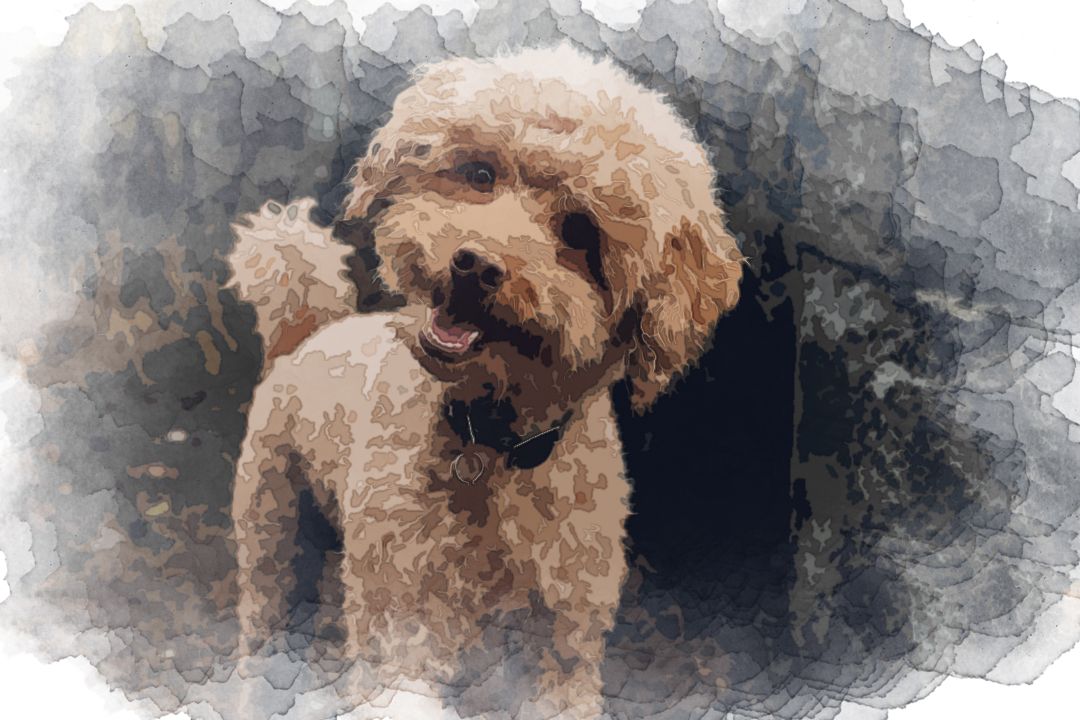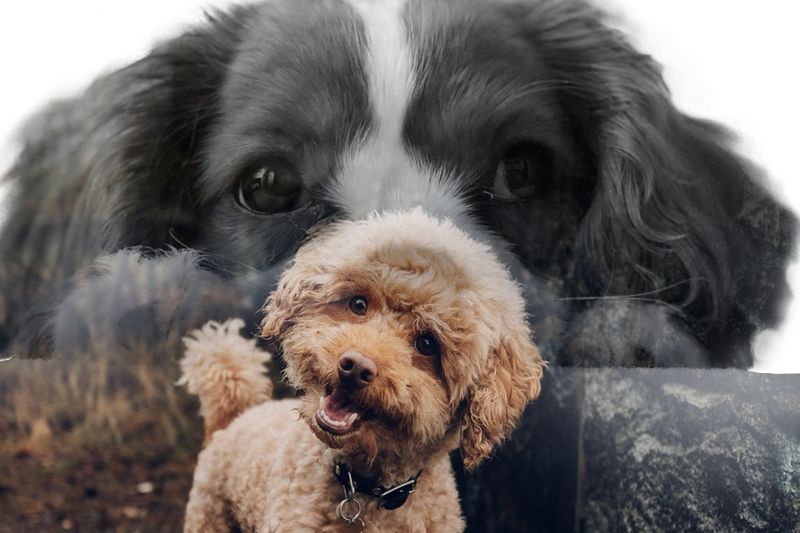Doppelgänger: Do Not Apply!

Oscar Wild: My Puppy from the Past
In the small, unremarkable town of Eldridge, defined by its sprawling meadows and the gentle hum of nature, there resided an individual who was anything but ordinary. Oscar Wild, known to the townsfolk as the reclusive sage of words, lived in a world crafted by his imagination. His life was a tapestry of stories, each more captivating than the last. Yet, the story that defined him was not one penned on paper but one that lived within the echoes of his heart—a tale about a boy, a puppy from the past, and a journey back to the essence of freedom and wildness.
The story commenced on a day like any other, under the watch of the indifferent sun and the whispers of the wind. Oscar, now a man worn by the passage of time, found himself sifting through the remnants of a life once lived. Amidst the clutter, his fingers brushed against the coarse texture of an old, forgotten journal, a relic from his youth. On its cover, words from a bygone era beckoned to him:
All good things are wild, and free.
— Henry David Thoreau (1817-1862)
This quote, a silent whisper from the past, ignited a spark within Oscar. Memories, long buried under years of routine and resignation, began to surface. He remembered his childhood, a time of unbridled joy and freedom, spent in the company of his spirited puppy, Max. Together, they explored the wilderness bordering Eldridge, two souls untethered by societal expectations. Those days were filled with laughter, adventure, and the purity of companionship. But as the years rolled on, the carefree boy from the woods found himself trapped in the mundane existence of adulthood, and the vibrant memories of Max faded into the background, silenced by the noise of everyday life.
The weight of his existence pressed down upon him. In this moment of profound self-reflection, he realized a bitter truth:
I had nothing to offer anybody except my own confusion.
— Jack Kerouac (1922-1969)
This stark admission marked the beginning of Oscar’s awakening. He saw himself for what he had become: a vessel of uninspired thoughts and unfulfilled dreams. His youth's wild, adventurous spirit was nowhere to be found, replaced by a man he barely recognized. The realization that he had lost himself in pursuing nothingness filled him with a profound disillusionment.
Days turned into weeks, and as the seasons changed, so did Oscar. He found himself revisiting the places of his youth, walking the paths that he and Max had once roamed with boundless energy. With each step, the layers of confusion and disillusionment began to peel away, revealing the faint heartbeat of the boy he once was. It was during these moments of solitary reflection that the words of Gabriel García Márquez whispered to him through the rustling leaves:
Life is not what one lived, but rather what one remembers, and how it is remembered to tell the tale.
— Gabriel García Márquez (1927-2014)
This revelation brought with it a new perspective. Oscar realized that his life was not defined by the mundane tasks that filled his days but by the memories he held dear, the moments of pure, unadulterated joy he shared with Max. These memories, these fragments of the past, told the true story of his life—not despair but of love, adventure, and freedom.
Emboldened by this realization, Oscar decided to alter the trajectory of his existence forever. He resolved to reclaim the wildness and freedom that once defined him. Abandoning the trappings of his old life, he set forth into the wilderness, guided by the spirit of his youthful adventures and the memories of his beloved Max.
The journey was arduous, a test of body and spirit, but Oscar pressed on, driven by the desire to reconnect with the essence of his true self. He traversed dense forests and scaled towering peaks, each step taking him further from the man he was and closer to the boy he remembered. Nights were spent under the canopy of stars, surrounded by the symphony of nature, each sound a reminder of his childhood exploits.
theOnOnossible happened. A familiar bark pierced the silence of the night, a sound that transcended time and space. Heart pounding, Oscar rose to his feet, and there, in the moonlit clearing, stood Max—or rather, a figure that embodied all that Max represented: loyalty, freedom, and the untamed spirit of youth.
Tears filled Oscar’s eyes as he approached the spectral form of his long-lost friend. The years fell away,
leaving behind the pure, unadulterated joy of reunion. In that moment, Oscar understood that while the physical world moves forward, the essence of what we love, what truly defines us, remains constant, wild, and accessible.
The tale of Oscar Wild and his puppy from the past became the most profound story he ever wrote. Instead, it was a story lived—a testament to the power of memory, the importance of self-discovery, and the unbreakable bond between a boy and his dog. Through his journey, Oscar rediscovered the freedom and wildness missing from his life, proving that it is never too late to find your way back to who you are.
This narrative became Oscar's legacy, not just to the residents of Eldridge but to all who heard his story. It reminded us that within each of us lies a wild, untamed spirit waiting to be set free. In the end, Oscar Wild’s adventure was not one of the tales he spun for the world but the journey he took within, guided by the memories of his puppy from the past.

Figures of Speech Collection Personified
Our editorial instructions for your contest submission are simple: incorporate the quotes and imagery from the above article into your submission.
What emerges is entirely up to you!
Winners receive $500 per winning entry multiplied by the article’s featured quotes. Our largest prize is $8,000 for rewriting the following article;

At Planksip, we believe in changing the way people engage—at least, that's the Idea (ἰδέα). By becoming a member of our thought-provoking community, you'll have the chance to win incredible prizes and access our extensive network of media outlets, which will amplify your voice as a thought leader. Your membership truly matters!


